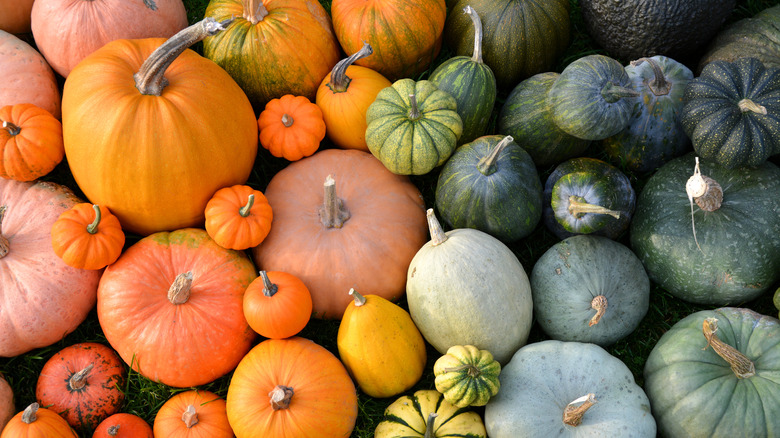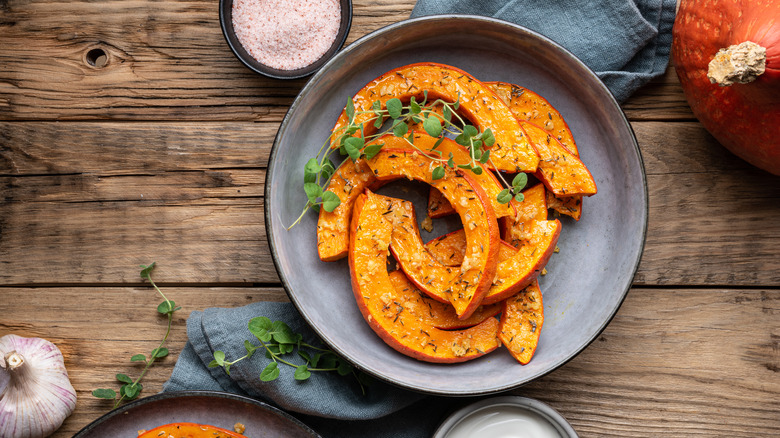A Big Mistake People Make When Cooking Winter Squash
If you're a fan of squash, then you probably already know that this fruit (yes, it is a fruit) can be divided into two basic categories: Summer and winter. According to Food Revolution Network, summer squash, which is harvested in the warmer months, tends to be of the softer, thinner-skinned varieties, such as green zucchini, yellow squash, and crookneck squash. Winter squash, which is harvested in the cooler months, tends to feature a thick skin and denser flesh and comes in varieties such as decorative gourds, butternut, acorn, and spaghetti squash.
Winter squash is a delicious feature of cold-weather tables, showing up in such dishes as easy-baked acorn squash, sausage and butternut squash pasta, and stuffed acorn squash. These varieties tend to be deeply sweet with a substantial, filling texture (via Epicurious), attributes that makes them ever so welcome at the conclusion of a long, cold day. If you regularly work winter squash into your cold-weather meals, then kudos! But you might be making a mistake when cooking them which you'll want to be sure to avoid from now on.
Winter squash can be cooked in a variety of ways other than roasting
If you love sweet, dense winter squash such as acorn and butternut, we're willing to bet you have a go-to method for preparing them, and that's roasting. Who could blame you? A variety of winter squash take well to roasting, their sugars caramelizing deeply and their flesh becoming soft and tender. But if that's the only cooking method you're limiting yourself to when preparing this cool-weather all-star, then it's time to branch out.
As noted by Bon Appétit, winter squash shines in a variety of other cooking approaches, from steaming to boiling to baking. The important thing to take stock of is which variety of squash you've chosen in order to know how to cook it. The outlet states that the classic winter squash butternut does indeed take well to roasting, caramelizing in the heat, and retaining its shape, while kabocha's creamy texture lends itself well to blended soups and purées. Delicata squash, which features a thin skin that doesn't need to be peeled, is a good choice for when you're pressed for time since it cooks more quickly than other varieties, and can be flash-sautéed in a pan, for example (via Misfits Market). So when the weather turns cool and you're assembling your arsenal of winter squash, remember that the oven isn't the only destination for this beloved category of produce.

